After scoring a major win in the election this week, President-elect Donald Trump is widely expected to move quickly on a broad agenda when taking office next January. He has made it clear this will include a number of issues critical to the auto industry, including tariffs and EVs. That presents some significant opportunities for manufacturers, but also poses quite a few risks, said a senior Toyota executive who spoke to Headlight.News shortly after Trump’s victory was confirmed.
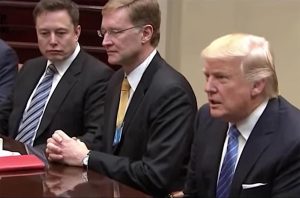
Trump developed ties to Tesla CEO Elon Musk during his first term in office and is widely expected to tap Musk for help during his second.
After winning a second term, President-elect Donald Trump is promising to execute a number of bold policy moves immediately after reentering the White House next January, going so far as to declare he will be a “dictator…on Day One.”
Whether that is more than campaign bluster remains to be seen. He didn’t follow up on many promises made ahead of his first term as president. But what seems clear is that issues that could strongly impact the U.S. – and global – auto industry are high on his agenda, including battery-electric vehicles and import tariffs.
There’s no question that automakers will be watching closely and hope that Trump will move on some of their own key needs. What actually happens during that first day – and beyond – could present significant opportunities for the industry, said David Christ, a Toyota group vice president and U.S. head of the Toyota division. But that also poses some peril that could negatively impact pricing, sales and profitability.
Getting the message across
Toyota plans to “work closely with the (new) administration,” Christ said during an exclusive interview on Wednesday, hours after Trump formally declared victory in the 2024 presidential election.
“We’ll obviously try to meet any new regulations put up by the administration,” he added, but the Japanese giant hopes to have the opportunity to meet with Trump to lay out its case for what those regulations should be.
Toyota officials certainly aren’t the only ones concerned with the possible moves the new president might make. Over the years, and especially during the latest campaign for the White House, Trump often shifted position on issues such as battery-electric vehicles, though he more consistently called for new tariffs on imported vehicles and auto parts, said Rick Wainschel, vice president of analysis at Cloud Theory, an automotive data insight company.
“Trump makes a lot of bluster and off-the-cuff remarks. But it’s unclear how that would translate into policy,” said Wainschel, adding “all bets are off on the long-term impact” of the policies the next White House occupant might actually put in place.
Changing position on EVs

Toyota Brand Boss David Christ shown during the debut of the sixth-generation Toyota 4Runner earlier this year.
Over the years, Trump has repeatedly expressed skepticism about environmental issues, such as climate change and renewable energy – at one point telling rally-goers that windmills cause cancer. But he’s also changed positions, at least somewhat, on battery-electric vehicles.
After initially attacking the technology, Trump said at a Georgia campaign stop, “I’m for electric cars. I have to be because, you know, Elon endorsed me very strongly. So, I have no choice.” That said, he continued to rail against the emissions standards put in place by the Biden administration earlier this year – which effectively translate into EV sales mandates that would require nearly two-thirds of the new cars, trucks and crossovers sold in the U.S. by 2032 to be zero-emission vehicles.
For his part, Toyota’s Christ said it makes sense to revisit those rules considering the slow pace of EV adoption in the U.S. While demand increased about 800% between 2019 and 2023, it’s now running closer to a 10% growth rate. All-electric vehicles will come in between 8 to 9% of the total U.S. market this year, according to forecasts by J.D. Power and others. Hybrids – including conventional and plug-in models – are expected to top that.
For its part, Toyota would like the Trump administration to back down on EVs in favor of a more multi-modal powertrain approach also including hybrids, PHEVs, even hydrogen fuel-cell vehicles. And it’s not alone. Stellantis is seeking a similar approach. Even General Motors CEO Mary Barra, who has repeatedly said GM is on “a path to an all-electric future,” now is adding PHEVs to the Detroit maker’s line-up.
More News
- Trump Vows to Reverse Biden EV Policies
- Auto Industry Was Central to Presidential Race
- Politics Becoming Less of a Factor in the EV Market
Could it backfire?
But how Trump addresses the EV issue could create major headaches for the auto industry. Toyota plans to significantly expand its line-up of battery-electric vehicles, noted Christ, and is in the midst of setting up not only an EV assembly plant but a $14 billion battery factory that will have capacity to produce up to 30 gWh worth of cells annually. That’s more than all production capacity was in the U.S. back when Trump left office the first time.
Toyota can’t just turn off that program, nor would it help to have the White House effectively scuttle the U.S. EV market, Christ said during his interview with Headlight.News and a subsequent appearance at the Automotive Press Association.
If anything, the automaker hopes that Trump will continue some Biden programs, including EV sales incentives, tax breaks and other incentives for manufacturers and funding for a more vibrant nationwide public charging network.
“That public charging piece is a very important point,” the executive said.
Tariffs, a double-edged sword
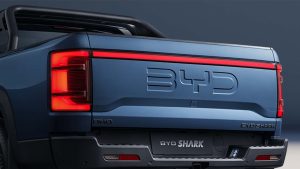
Tariffs imposed by the Biden administration have effectively barred Chinese automakers from entering the U.S. market – with a couple rare exceptions.
Import tariffs are another issue which has been high on the incoming president’s agenda, especially when it comes to automobiles.
Ironically, this is one area where the president-elect and his lame duck predecessor share common ground. Biden this year enacted an array of new tariffs on Chinese-made goods, including a fourfold increase – to 100% — on EVs. But, during his first term, Trump signaled he was ready to launch a much broader series of trade barriers, possibly including tariffs on Japanese and European vehicles. That prospect has far from gone away as he prepares to return to the White House.
“If there’s a good side, it could significantly increase (automotive) manufacturing in the U.S.,” said Rick Wainschel, vice president of analysis at Cloud Theory, an automotive data insight company. But there’s a potentially bad side, as well. Hefty new tariffs on autos and auto parts “could also significantly increase vehicle prices.”
Even for the most efficient manufacturers, the cost of building a vehicle is generally higher in the U.S., “which is why manufacturers go to places like Mexico.” And while Trump has frequently – and inaccurately – suggested that foreign countries, like China, absorb new tariffs, the truth is that they are passed on to consumers, effectively as a tax.
American-made, more or less
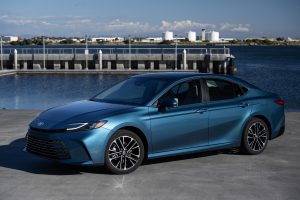
Roughly two-thirds of Toyota products sold in the U.S. are built locally, including the 2025 Camry. But they still rely on some imported parts.
The new administration will need to understand the highly complex and interrelated nature of the global auto industry, said Toyota’s Christ. The automaker already produces about 80% of the vehicles it sells in the U.S. at its various North American assembly plants. And it has increasingly come to rely on regional sources for everything from raw steel to powertrains.
The popular Camry sedan is a case in point. It routinely is cited in studies as among the most “American-made” of vehicles sold in the U.S. But even though 90% of its parts and components are produced in the U.S., the executive said, tariffs on the remainder would still raise prices.
If anything, there’s a consensus among automotive leaders and analysts that anything that drives up vehicle prices could have a significant, negative effect on an industry that has yet to fully recover from the impact of the COVID pandemic. “Considering prices are already causing people trouble affording new cars,” said Wainschel, new tariffs “have the potential to significantly impact industry profits.”
Labor in the crosshairs
As Tuesday’s vote was tallied, Trump scored a decisive victory in Michigan. And the GOP captured a Senate seat, as well. Early analysis suggests that was driven by support from the state’s huge base of autoworkers who voted Republican despite the fact that the United Auto Workers Union had strongly backed Democrat Kamala Harris.
One of the uncertainties about the incoming president is how he will address union issues. In practice, Trump has traditionally spoken harshly about organized labor and even expressed his resistance to such practices as paying overtime at his own businesses.
Following its big win in 2023’s contract negotiations with General Motors, Ford and Stellantis, the United Auto Workers Union set out to organize foreign-owned — so-called “transplant” – factories. The Biden administration clearly was supportive. Trump has sent mixed signals on unions, depending on who his campaign talked to. But, in general, he has been far less friendly to organizing efforts.
Though Toyota’s Christ did not address the labor issue, any resistance to organization efforts by the White House is likely to be well-received by that automaker and other foreign-owned manufacturers, several analysts suggested.
Autonomous vehicles and more
The new administration will have to deal with a broad range of additional auto-related topics, including autonomous vehicles. The Biden administration has yet to come up with formal rules for testing on public roads and will pass that issue on come January.
Considering Tesla’s plan to introduce the new, self-driving CyberCab as early as 2026, it’s no surprise that Musk is whispering in the newly elected president’s ear. “There should be a federal approval process for autonomous vehicles,” Musk said during Tesla’s recent earnings call earnings call. “If there is a department of government efficiency, I’ll try to make that happen.”
Musk has openly expressed his interest in finding a job in the new Trump administration, emphasizing an interest in pushing for better government efficiency.
Meanwhile, the industry will also have a new ally in what will become a GOP-controlled Senate after car dealer Bernie Moreno ousted incumbent Democrat Sherrod Brown.
But can Trump get what he wants?
According to numerous reports from the Trump camp, the next president plans to sign a slew of executive orders immediately ofter taking office.
While some of the things he’s expected to sign could please the auto industry, there’s still “a lot of immediate volatility in the transportation policy space,” John Miller, who covers sustainability policy for TD Cowen’s Washington Research Group, told trade publication Automotive News.
Not only is it uncertain what moves Trump will take, said Christ, but whether those actions will stand, added Wainschel.
“Trump makes a lot of bluster and off-the-cuff remarks,” he said. “But it’s unclear how that would translate into policy.” And, he added, if the next president again tries to shortcut the legislative process by relying on executive orders to, say, rollback Biden’s vehicle emissions standards, many of Trump’s policies could wind up getting “tied up…for years” in court.

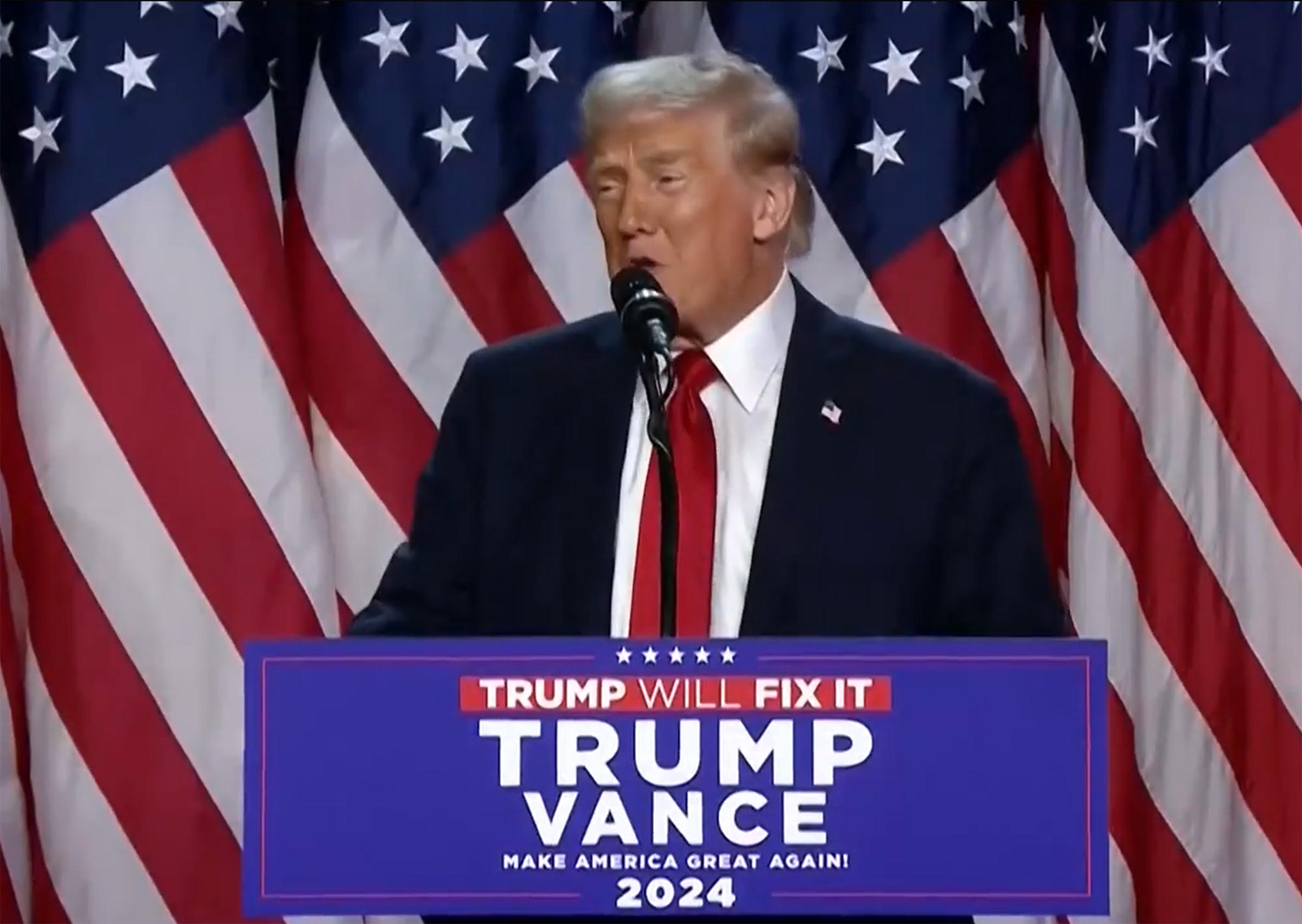
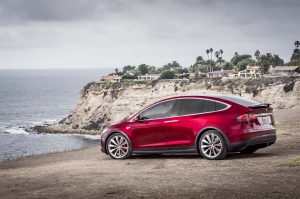
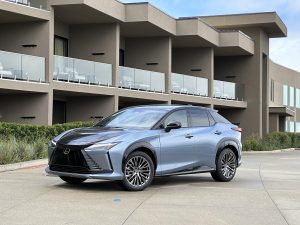

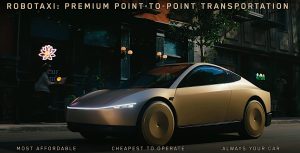
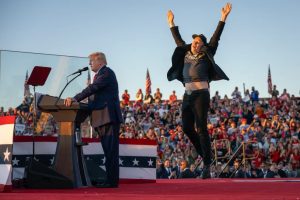
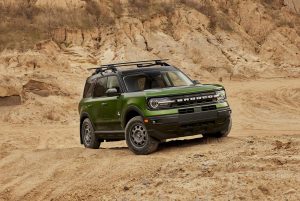

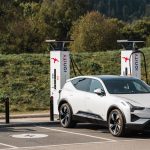
Toyota should know that the auto workers union increases cost for the auto maker which increases the price of autos. Trump wants more products made here than in Mexico or China which puts more people to work here
Would you say the same about the increasing pay for executives?
FYI, you do realize that pay packages, all included, still account for less than 10% of vehicle costs?